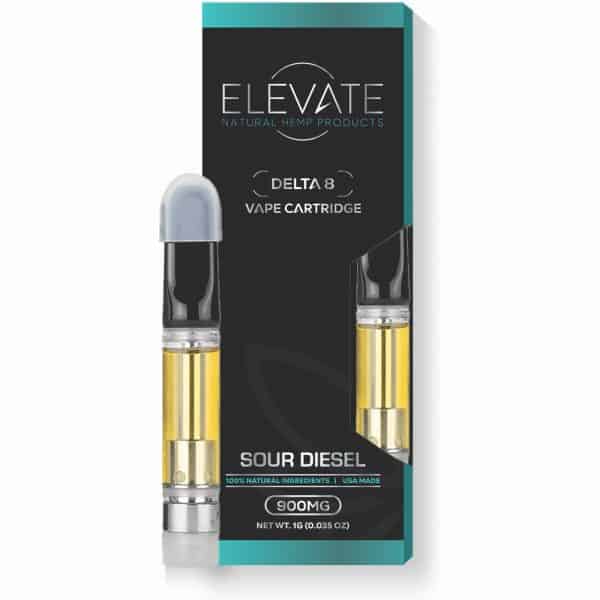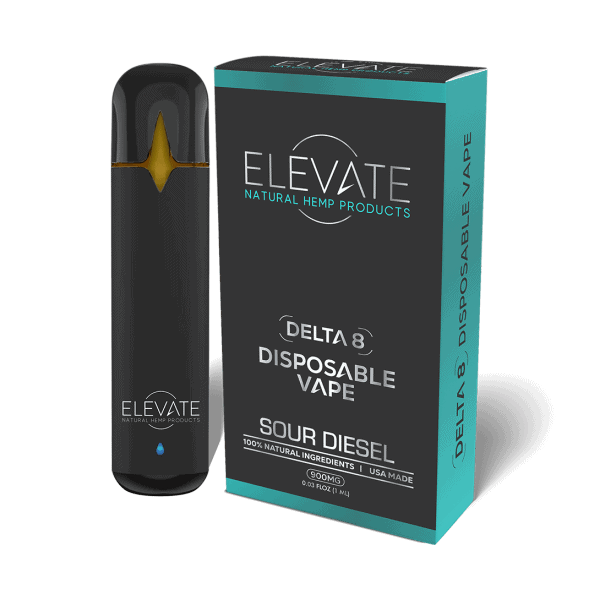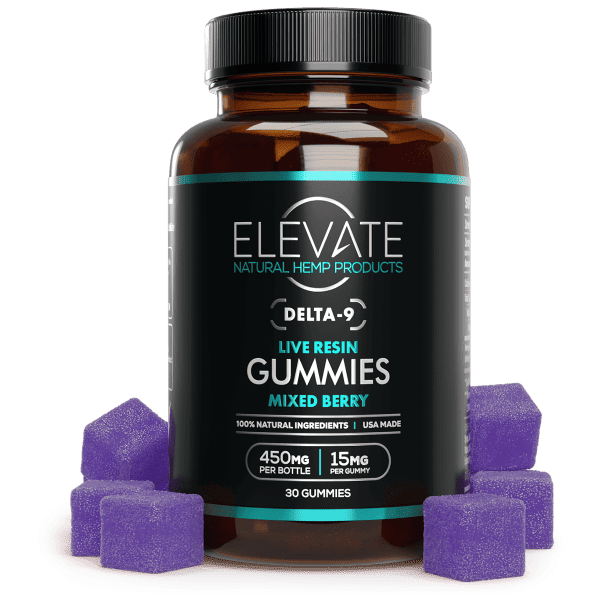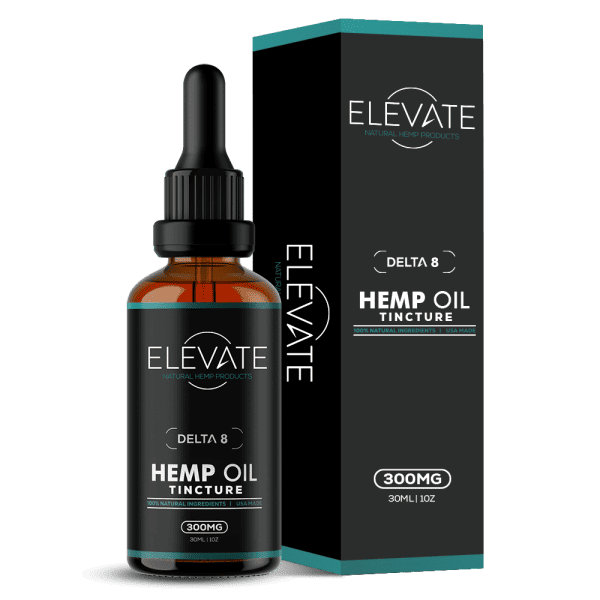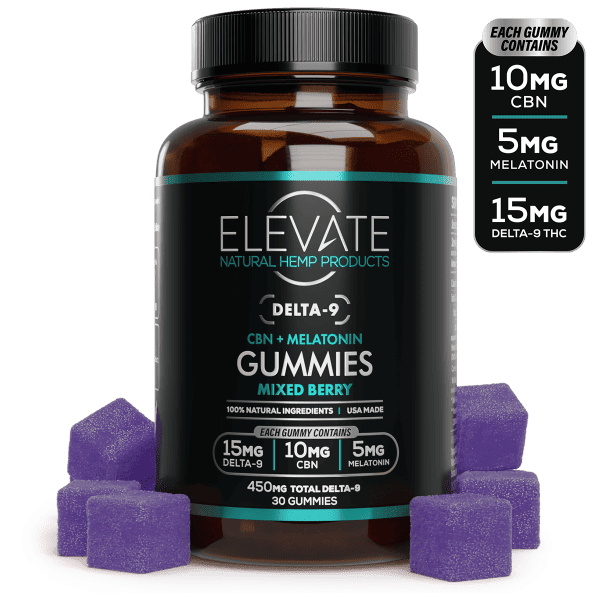
THCa vs. Delta 9: Similarities, Differences and Effects
As we explore the vast and ever-expanding world of cannabis, it’s easy to get lost in the sea of acronyms and terms that float around. Among these, THCa and Delta 9 THC stand out as two critical components that every cannabis enthusiast should be familiar with, especially if you’re looking to elevate your understanding and experience.
In this blog, we’ll dive into what THCa and Delta 9 are, and demystify the differences between them. So, whether you’re curious about the science behind your favorite delta 9 gummies or just looking to broaden your cannabis knowledge, you’re in the right place.
THCa vs. Delta 9
Tetrahydrocannabinolic acid, or THCa, is a non-psychoactive cannabinoid found in raw and live cannabis. As the precursor to delta 9 THC, the compound most people associate with the “high” of cannabis, THCa itself doesn’t produce intoxicating effects. Instead, it requires decarboxylation— a process of heating that converts THCa into THC, unlocking its psychoactive potential.
THCa is found in high concentrations in fresh cannabis plants, and its benefits extend beyond just being a precursor to THC. Studies have shown that THCa has anti-inflammatory and neuroprotective properties, making it a point of interest for medical research and wellness-focused cannabis consumers.
What is Delta 9?
Delta 9 THC, or delta-9-tetrahydrocannabinol, is the most well-known cannabinoid found in cannabis. It’s responsible for the psychoactive effects that cannabis is famous for, offering feelings of euphoria, altered perception of time and space, and in some cases, relief from symptoms like pain and nausea. When you consume cannabis in any form—smoking, vaping, or edibles like delta 9 gummies—delta 9 THC is the compound that’s primarily at play.
What’s the Difference between THCa and Delta 9 THC?
The main difference between THCa and Delta 9 THC lies in their chemical structure and physiological effects. THCa is a non-psychoactive acid form of THC, meaning it won’t get you high in its raw state. It requires heat to transform into Delta 9 THC, the compound known for its psychoactive properties.
This transformation occurs through a process called decarboxylation, where the application of heat removes a carboxyl group from THCa, converting it into THC. This is why raw cannabis won’t have the intoxicating effect many seek until it’s heated, such as when smoking, vaping, or cooking it into edibles.
Understanding the difference between these two cannabinoids is crucial for both consumers and medical patients. For those looking into cannabis for therapeutic purposes, knowing that THCa may have its benefits without the psychoactive effects can be particularly valuable. Meanwhile, recreational cannabis users or those seeking specific therapeutic effects from THC will find that products like Delta 9 gummies offer a convenient and controlled way to consume Delta 9 THC.
Effects and Benefits of THCa
THCa stands out for its potential benefits, primarily due to its non-psychoactive nature. Here’s what research and anecdotal evidence suggest about THCa:
Anti-Inflammatory Properties
THCa has been shown to possess anti-inflammatory capabilities, which could be beneficial for individuals suffering from conditions like arthritis, Crohn’s disease, and other inflammatory disorders. Its ability to reduce inflammation without psychoactive effects makes it an attractive option for those seeking relief without the high.
Neuroprotective Effects
Preliminary studies indicate that THCa may offer neuroprotective benefits, potentially aiding in the protection against neurodegenerative diseases such as Parkinson’s and Alzheimer’s. This aspect of THCa is being explored for its potential to safeguard brain health and function.
Anti-nausea and Appetite Stimulant
For patients undergoing treatments like chemotherapy, THCa has shown promise in reducing nausea and stimulating appetite, offering a natural means to mitigate some of the challenging side effects of such therapies.
Potential Anticancer Properties
Early research suggests that THCa might have anti-cancer properties, indicating its potential to inhibit the growth of cancer cells. Although this area requires more study, it opens up exciting possibilities for cannabis in cancer treatment strategies.
Delta 9 Effects
Delta 9 THC, known for its psychoactive properties, offers a range of effects and benefits that have made it famous worldwide:
Pain Relief
One of the most celebrated benefits of Delta 9 THC is its ability to relieve pain, ranging from chronic pain associated with medical conditions to acute pain following injuries. Its analgesic properties make it a cornerstone of medicinal cannabis use.
Mood Elevation and Relaxation
Delta 9 THC is well-known for its ability to enhance mood and induce relaxation. This makes it particularly beneficial for individuals dealing with anxiety, depression, or simply looking to unwind after a stressful day.
Sleep Aid
For those struggling with insomnia or sleep disturbances, Delta 9 THC can serve as an effective sleep aid, promoting longer, more restful sleep.
Enhanced Appetite
Commonly referred to as “the munchies,” the appetite-stimulating effect of Delta 9 THC can be beneficial for patients experiencing appetite loss due to medical treatments or conditions.
Neurological and Mental Health Benefits
Beyond its immediate effects, Delta 9 THC has shown potential in treating symptoms related to PTSD, offering therapeutic benefits in managing certain mental health conditions.
Both THCa and Delta 9 THC offer a spectrum of benefits, highlighting the therapeutic potential of cannabis. Whether you’re interested in the non-psychoactive health advantages of THCa or the well-documented effects of Delta 9 THC, the cannabis plant continues to offer promising avenues for wellness and relief.
Is THCa Stronger Than Delta 9?
In the raw cannabis plant, THCa is the abundant non-psychoactive precursor to Delta 9 THC. When we talk about strength, if you’re referring to the psychoactive “high,” then THCa isn’t “strong” at all because it doesn’t produce these effects in its natural state. It’s like comparing a stored energy drink that hasn’t been opened yet (THCa) to the rush you get once you drink it (Delta 9 THC). The process of decarboxylation, which involves applying heat, transforms THCa into Delta 9 THC, the compound renowned for its psychoactive prowess.
Delta 9 THC is the star of the show for those seeking the euphoric, mind-altering effects associated with cannabis. It’s the compound that has been both celebrated and scrutinized, given its potent psychoactive effects. On the other hand, THCa, in its raw form, is like the unlit fuse of a firework—full of potential but requiring a spark (heat) to truly come alive.
When you light up a cannabis flower, does THCa transform into Delta 9 THC?
This question taps into the fascinating chemistry that occurs when cannabis is consumed through smoking.
Indeed, THCa does convert into Delta 9 THC when smoked. This transformation is a result of a process called decarboxylation, which occurs when cannabis is subjected to heat. During smoking, the heat from the flame causes the THCa, which is non-psychoactive and abundant in raw cannabis flowers, to lose a carboxyl group (COOH) through decarboxylation. This chemical reaction changes the molecular structure of THCa, turning it into Delta 9 THC, the compound known for its psychoactive effects.
This conversion is crucial for users seeking the psychoactive effects of cannabis, as THCa on its own does not produce the “high” associated with THC. Through the act of smoking, the cannabis is effectively activated, unlocking its psychoactive potential and allowing users to experience the full range of effects that Delta 9 THC has to offer, from euphoria and relaxation to altered sensory perceptions.
So, in response to the question of whether smoking causes THCa to turn into Delta 9 THC: yes, it does. This chemical transformation is at the heart of why cannabis is smoked, as it shifts the cannabis from its raw, non-psychoactive form into one that delivers the iconic cannabis experience.
Final Takeaway: How is THCa Different From Delta 9 THC?
In the comparison between THCa and Delta 9 THC, it’s clear that both compounds play unique roles in the cannabis experience. THCa, found in raw cannabis, is non-psychoactive and holds potential for various health benefits without inducing a high.
Upon being heated, through processes like smoking, THCa transforms into Delta 9 THC, the primary psychoactive compound responsible for the classic cannabis euphoria and therapeutic effects, such as pain relief and mood enhancement. This fundamental difference highlights the versatility of cannabis, catering to those seeking medicinal properties without intoxication and those desiring the psychoactive effects for both recreational and therapeutic use.
Related Posts
Live Resin Carts vs Normal Carts
Are you curious about the buzz surrounding live resin carts and how they compare to traditional vape cartridges? Live resin carts have surged in popularity …
Does THCa Get You High?
Curious about THCa and its effects? You’re not alone. As cannabis research expands, more light is shed on the lesser-known compounds in the plant. THCa, …






